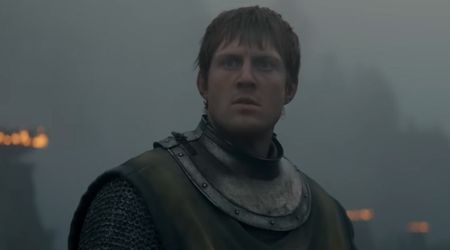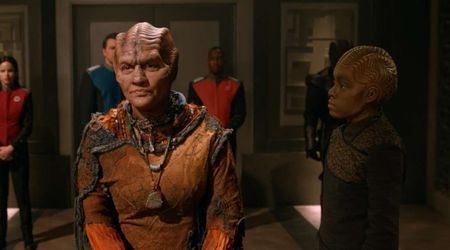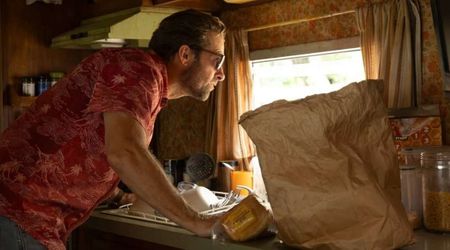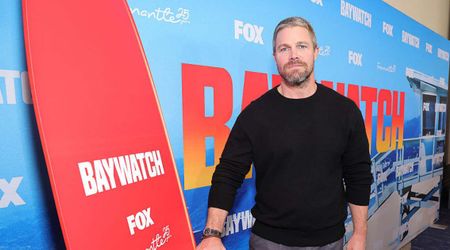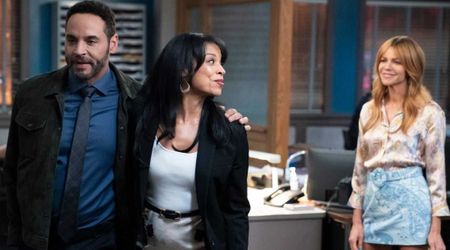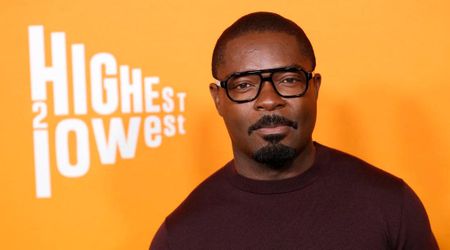‘Trial by Media’ shows how the press helped 'Subway Vigilante' who gunned down 4 Black teens get away with it

Manhattan resident, 37-year-old Bernard Goetz, was riding the subway in New York on December 22, 1984, heading to meet some friends for dinner when he noticed four black teenagers around him. He saw one of them looking at him, and suspecting that they were about to mug him, Goetz took out his gun and shot the four of them. The shooting set out his journey to becoming a folk hero to New Yorkers.
The news hit the tabloids early morning as a hunt was launched for what the media called a 'Subway Vigilante.' He was described as a white man in his late 30s, blonde hair, and wearing glasses. As the suspense around his whereabouts grew, so did speculations on his identity. People were questioning whether he was a New Yorker or an outsider, whether he was a military man? There were also comparisons made to the actor Charles Bronson, who was the ultimate cold, macho guy who fought the bad guys on-screen at the time.
The more the tabloids covered him, the more sympathy Goetz received from the residents. Crime in New York in the 80's was at its peak and the residents' faith in the criminal justice department was dwindling. The people of New York identified with him and believed that he was just defending himself. Meanwhile, all four teenagers, Barry Allen, Troy Canty, Darrell Cabey, and James Ramseur, between the age of 18 to 19, were in critical condition. Two of them were shot in the chest, and two in the back.
After days of hunting, Goetz surrendered himself to the police of Concord, New Hampshire, where he had escaped to after the attack. He was arrested on four counts of attempted murder and unlawful possession of a weapon. When the "vigilante" was finally caught, he did not appear to be what the people had thought him to be.
Instead of a steely, macho guy, Goetz turned out to be a soft-spoken person. He graduated from New York University with a degree in nuclear engineering and operated an electronics repair and testing company from his bedroom.
Police revealed that Goetz was mugged and robbed nearly four years before the killing, and media attempted to justify that his current actions could be explained from his prior experience. The 37-year-old claimed that the teens pressed him for five dollars, and he reportedly told them: "I've got five dollars for each of you," before he pulled the trigger.
The media's sensational coverage and apparent sympathy for the "Subway Vigilante" made him a national talking point, with Senator Alfonse D'Amato bringing the case at a Congressional hearing in Washington, saying he would be glad to testify as he had felt threatened while riding in a New York subway too. President Regan also brought up the case during a White House briefing, saying he could not condone what Goetz had done but he understands the frustration of people constantly threatened by crime.
With the rising crime in the city, a group called Guardian Angels, which believed in self-defense, began patrolling the subway in the absence of any transit cops. The group even urged the mayor at the time to grant amnesty to the shooter. There were widespread protests in the state, with people making fundraising efforts to pay for Goetz's bail and legal expenses. Goetz turned into a celebrity within days, and could not go anywhere without the media tailing him. His popularity surged by every passing day with records, T-shirts, and bumper stickers of him being sold. People said that he had more bodyguards at the time than Michael Jackson.
A waitress in the 80s, Cath Dwyer, said of Goetz: "He was right to do what he did. I would have done the same thing. I hope he runs for president."
With Goetz's rising fame, the National Rifle Association (NRA) attempted to encash on his case. The 37-year-old had applied for a gun license but could not get a concealed carry permit in New York. The NRA made him their poster boy by telling residents they needed a change in the law to protect themselves.
The case also sparked conversations about race and bigotry as many from the black community said that this type of vigilantism was reminiscent of the Ku Klux Klan (KKK), who also called themselves that. One of the victims, Darrell Cabey, who was shot in the back, gained consciousness but was paralyzed from the waist down, with severe brain damage. Cabey's mother received a hate mail, which read: "Dear Mrs. Cabey, I'm glad Darrell is paralyzed. He needs to sit his black a** in a wheelchair for the rest of his life. I'm sorry that the other three can't join him." Inundate with such mail, Darrell's mother decided to file a suit against Goetz for $50 million.
Meanwhile, Goetz's attempted murder trial revealed some gruesome details about the attack. The prosecutor released audio of Goetz's interview, where he stated in detail how he shot the four boys. Goetz said that he saw the shine in one of the boys' eyes and he knew what they were up to. He had fired his gun even before they made a move if any. It was also revealed that after firing the initial shots he waited to see if all of them were injured, he found that Cabey was not, and said he didn't think he "looked too bad" and fired another shot, saying "here's another." His statement suggested that the shooting wasn't a defense act, it was premeditated murder.
"If I had more bullets I would have shot them again and again," Goetz said, adding that he wanted to gouge their eyes out.
After a lengthy trial and a media blitzkrieg, Goetz was acquitted of all charges of attempted murder and assault. He was only charged for unlawful possession. The ruling was condemned by Black leaders of New York.
Goetz was sentenced to a one-year imprisonment and a $5,000 fine for unlawful possession of a weapon, he was released after 8 months of his sentence.
Years after the killings, Goetz, who still continues to work from his Manhattan apartment, was asked during a radio show whether he ever regretted his actions.
He said: "Of pulling the trigger? Well, I don't think it is the type of thing you regret."
Netflix's docuseries 'Trial By Media' premieres May 11.

